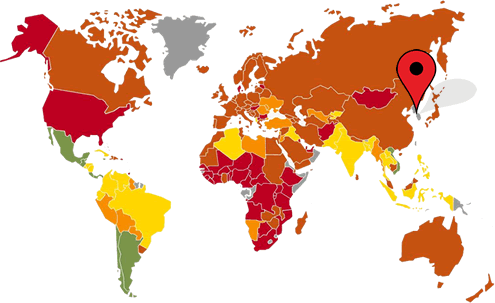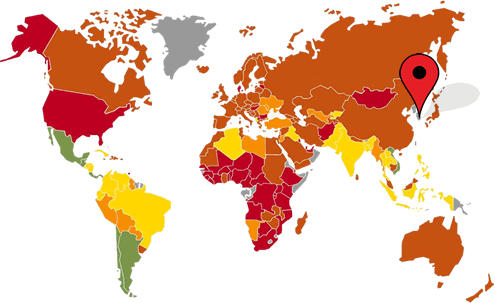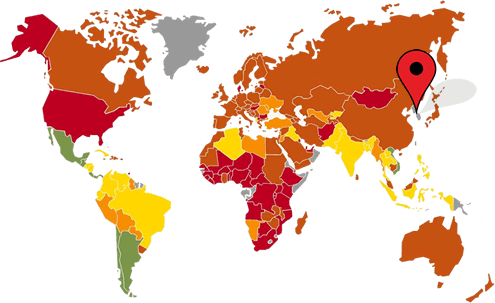Teaching English in Seoul, South Korea

Report submitted on 29 Sep, 2016 by Christina.
Teaching English in Seoul, South Korea:
How can teachers find teaching jobs in Seoul, South Korea?
There are a ton of recruiters available online to help you find jobs. You can also apply to schools directly.
The main English teaching jobs available are:
Full time English language school positions, teaching at kindergartens / pre-schools, teaching at private international schools, teaching at colleges / universities, private teaching (not through a school, agency, etc.)
What are the minimum teaching requirements?
A college degree in any field, being a citizen of a native English speaking country, and no criminal record. Teaching experience is not necessary but helpful for finding better jobs. ESL teaching certification will secure you a good position, but it’s not needed.
What teaching requirements would you recommend?
You can find good or bad positions with any type of qualifications; it all depends on how carefully you search for schools. If you want a university or international school position you will need teaching certification. Of course for any position you need to be a native english speaker.
What are the levels of payment?
Most schools (public and private) for first year teachers is between 1.9~2.1 million won (approx. 1,670~1,840 US$) a month. Better schools pay around 2.3~2.6 million won (approx. 2,020~2,280 US$). If you find a school that pays more than that, you’ve hit the jackpot, but be prepared to work much harder.
How many teaching days a week is normal?
5 days per week.
How many face-to-face teaching hours a week is normal?
25~30 hours per week.
What is the normal arrangement for holidays?
One week in Summer and Winter, a three day thanksgiving holiday and all other national holidays.
What advice would you give to someone considering coming to Seoul, South Korea to teach English?
Have an open mind to the culture and don’t expect it to be the same as your home country.
What are the positive aspects of teaching English in Seoul, South Korea?
Students are generally kind, schools are well set-up and usually they will help you with any issues you have with your living situation. Pay is great and you can afford to save lots each month.
What are the negative aspects for teaching English in Seoul, South Korea?
Many schools are corrupt and it can be hard to find a good place to work. Age is supreme here so expect to follow orders blindly from anyone older than you. Not much vacation time compared to other countries.
What are some of the teaching challenges for English teachers teaching the local people in your area?
The majority of students in the private academies are only there because their parents force them and are often overworked and stressed from the multitude of other academies they attend. This can lead to either really unmotivated, boring classes or classes with extreme behaviour issues.
Living in Seoul, South Korea:
Are there any visa or other legal requirements to live in South Korea?
You will need a teaching (E2) visa. This will be arranged by your school once you are hired.
What is the cost of living like in South Korea?
Rent between 400~700 US$ a month, cost of living very low compared to similarly-developed countries. I can afford to live rather lavishly and still have plenty to send home for college loans.
What are the usual accommodation arrangements and how can you find accommodation?
Your school will either provide a furnished apartment for you or provide a housing allowance, in which case you can walk into one of the thousands of real estate offices and find an apartment on your own.
Other than teaching, what positive aspects are there for living in Seoul, South Korea?
Living in Korea is great for 20-somethings who want to enjoy living somewhere with a low cost of living and plenty of opportunities for entertainment, travel, and shopping.
Also, the people are kind and easy to befriend. The food is amazing and there are great underground music and fashion scenes.
Other than teaching, what negative aspects are there for living in scenery, South Korea?
People can be rude occasionally in public, and only the younger generation is very open minded. You can find most foods from the States but they’re likely to be a little different than what you’re used to.
What advice would you give to someone considering coming to Seoul, South Korea?
Learn to read the Korean alphabet (Hangeul)! It will only take a few hours and it will help immensely even if you don’t actually speak Korean (many signs are just English words written in Korean alphabet). Also, make sure you do enough research on a school before accepting any positions.
What things do you miss most (other than family and friends) from your home country?
Pizza that doesn’t have corn or potatoes on it, greek yogurt, and some other random foods. Most everything else you can get here.
What do you think you will miss most when (or if) you leave South Korea?
The food, the clubs, McDonalds delivery, the convenience and availability of everything.
What things would you recommend to new teachers in your area to bring with them from their home country?
Most everything is available here. (Don’t listen to people who say you can’t find tampons or deodorant. A few years ago you couldn’t but they’re everywhere now.)
About Me and My Work:
My Name: Christina
Nationality: USA
Students I’ve taught in South Korea: Pre-school / kindergarten (4-6 years), elementary (6-12 years), junior high school (12-15 years).
Where I teach: Elementary School, Seoul. Teaching here for 4 years.
Through a friend who recommended the company. Previous jobs here were all found through a recruiter.
My school facilities: Very good – I teach for an after school English program and my particular school doesnt have a classroom specifically for my class so my supplies are limited. Other schools I have taught at did not have this problem however.
What kind of teacher support is available at your school/s?: Training / workshops
Do you teach English in South Korea?
Tell us about your experiences – click here to submit your report about teaching English in South Korea.




